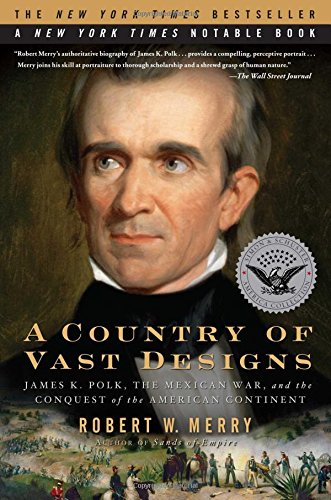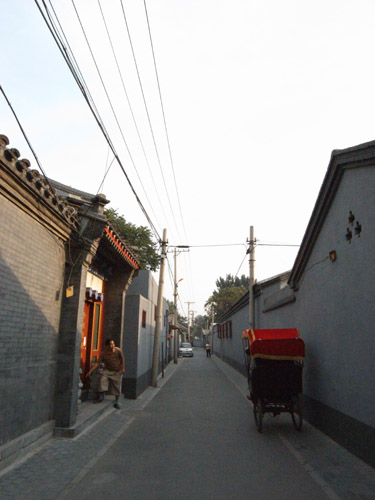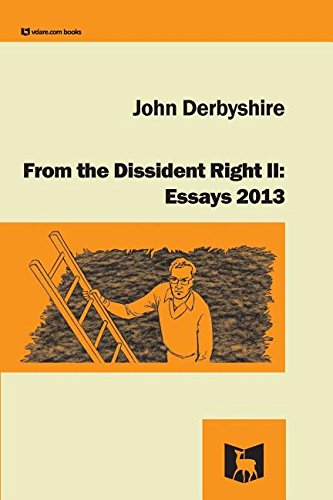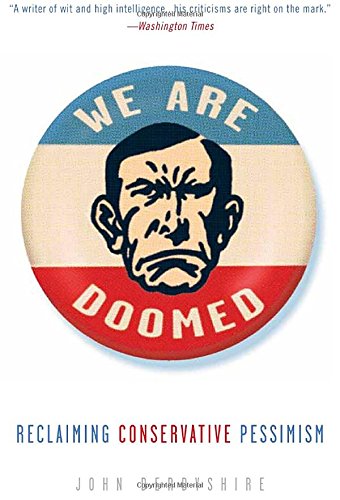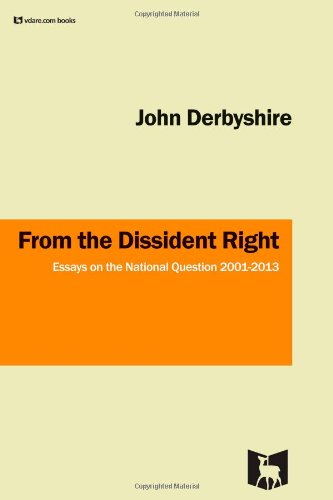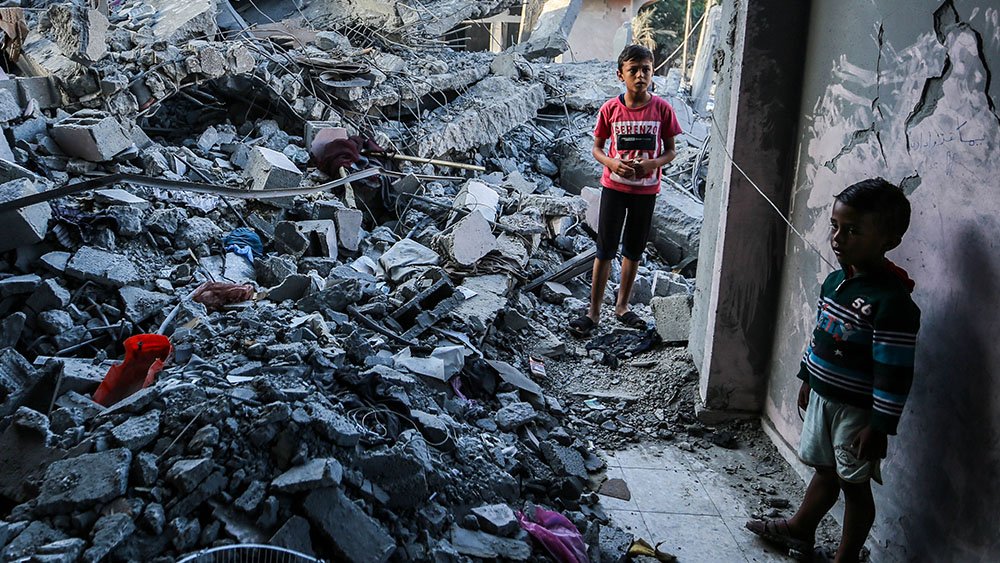SEPTEMBER DIARY: My Return to China—After 18 Years, by John Derbyshire
[I spent three weeks, September 9th to 29th, in China with my wife Rosie (who was born and raised in China, of Chinese ancestry). This month’s diary consists of random observations I made during the trip.
This was my first visit to mainland China since 2001, eighteen years ago. By coincidence, that 2001 visit was my first since 1983, also a span of eighteen years.
Although I intended to enjoy myself in the proper vacation spirit, and did so, this jaunt was really for Rosie. She wanted to visit her relatives over there, and her old classmates from school and college. They are scattered across China, so we boxed the compass on this trip: north (Peking, Siping), east (Suzhou, Hangzhou, Shaoxing), west (Chongqing), and south (Zhuhai).
Where I have used a Chinese word, I have given it a link to Google Translate so you can hear the pronunciation. Ignore Google’s English translations, which are often wrong. I’ve used Chinese place-names except where there is a well-established (according to me) English name for a Chinese place: Peking, Canton.]
• Monday, September 9th: Leaving New York.
Rating Air China
We fly Air China from New York to Peking, a single 13½-hour flight.
There is no way an economy-class flight that long can be enjoyable, but Air China don’t do anything to make it worse. The food is average airline food. The cabin staff are friendly and efficient. Also young and skinny; and in the case of the males, noticably tall—in the top decile for Chinese men, I think.
I brought a nice fat book to read: Robert Merry’s account of the Polk presidency. Got sixty pages in but dozed off.
• Tuesday, September 10th: Arrive in Peking.
One less minor travel chore
At half past six in the Peking evening, actually. On Eastern Daylight Time, New York is twelve hours behind Peking, so no need to adjust watch. Cool … except that we are looking at maximum jet lag.
Laoyi and Yifu
Rosie’s aunt and uncle are our hosts in Peking, as in 2001. Uncle has checked us into a good upmarket hotel less than two miles south of Tiananmen Square. He and aunt live in a small apartment a few blocks away.
Neither of them speaks any English, so my Chinese is going to get a stress test. The first thing is forms of address, which I’d forgotten and had to be reminded about.
Eskimos have twenty words for snow; the Chinese have eight each for “uncle” (father’s older brother, father’s younger brother, father’s older sister’s husband, father’s younger sister’s husband, mother’s older brother, mother’s younger brother, mother’s older sister’s husband, mother’s younger sister’s husband) and “aunt” (you get the idea). That’s just the formal nouns; there are some colloquial variants you have to be told.
We settle on me addressing this aunt as laoyi and uncle as yifu.
• Wednesday, September 11th: Peking, then Peking to Siping.
Impressions of Peking
Peking’s a big modern city, spacious and clean. I’ve read all the scare stories about air pollution, but there’s nothing I can notice and the sky is clear blue.
If you walk north half an hour from our hotel you hit Chang-an Avenue, the main east-west drag through central Peking. If you then hang a right and walk east a few hundred yards you’re opposite the entrance to Zhongnanhai, the big park-compound where China’s senior leaders live. Keep walking east and the avenue goes right across the front of Tiananmen, the “Gate of Heavenly Peace,” with Tiananmen Square at your right.
We decide to take this walk. When we get to Chang-an and hang the right onto the avenue, however, we come to a security checkpoint. October 1st is National Day, and it’s a big one this year: the 70th anniversary of the People’s Republic. There are to be huge parades and displays, and this whole central area is being secured in preparation.
The checkpoint guard wants to see our passports. We didn’t bring them; but Rosie turns on the charm and he lets us through. We walk east along Chang-an and take pictures outside the Zhongnanhai entrance gate. At this point we decide we’re tired of walking. We have to catch a train mid-afternoon, too. So we pass on Tiananmen and head back to the hotel.
Walking up and then back down Nanxinhua Street on this outing I’m pleased to see that a lot of the old hutongs—narrow alleys characteristic of the old city—have been landmarked and preserved.
The Installed Base problem
Mid-afternoon we go to the railroad station for a six-hour ride up to Siping in northeast China. It’s 470 miles as the crow flies, so six hours is not bad. This is in fact a gaotie, a high-speed train, that can reach, depending on the line, over 200 mph … but there are a lot of stops.
The gaotie is a nice ride. To get on it, though, you have to go through Transportation Security Theater, like at an American airport but less of a trial: you don’t have to take shoes or belt off and the security people, while brisk and unsmiling, at least don’t snarl or shout.
The railroad station itself is agreeable, too—clean and efficient. Likewise the Peking subways, which put New York’s to shame. Why can’t America have stuff this nice?
Peking’s not having a big resentful and antisocial underclass helps a lot, of course. The fundamental problem, however, is the Installed Base. New York city’s subway system is 115 years old. It’s dirty, unreliable, and badly maintained, but everybody’s used to it. New Yorkers put up with it from habit.
There’s a unionized workforce and an entrenched management/patronage bureaucracy—a lot of iron rice-bowls that can’t be broken. The Installed Base.
For thin consolation, we can reflect that a hundred years from now all these spiffy gleaming Chinese transit systems will be Installed Base. They will be as crappy, ill-maintained, and ill-managed as today’s New York subway or La Guardia airport. Probably a lot worse, in fact, given what we know about Chinese quality control.
Everything looks great when it’s new, duh.
• Thursday, September 12th: Siping.
Celebrity!
Siping is a town in northeast China. I lived and worked there for the academic year 1982-3, lecturing in English at what was then Siping Normal (i.e. teacher-training) College. Rosie (pictured right)was one of my students. Another one—a classmate of Rosie’s, now a lecturer himself—has invited us up there to look at the place 36 years on from when we knew it.
This ex-student’s name is Geoffrey, as in Chaucer. Having no confidence in my ability to hold dozens of Chinese names in my head, when teaching at Siping I awarded all my students English names, from English literature.
Geoffrey and another lecturer meet us at the station and drive us to the college, where we are to be put up for the night at college expense. The other guy has a camera—a real one, not just a smartphone camera—and is diligently recording the whole thing. We soon grasp that I am in fact something of a celebrity, almost a historical figure hereabouts.
Siping Normal College, which had around a thousand students back in 1983, is now Jilin Normal University with 30,000. I was its first-ever foreign lecturer. When I arrived in 1982 I was in fact the only foreigner for seventy miles around, and a major attraction to the citizens of Siping, who would stop and stare as I walked past.
If I myself stopped walking and just stood still a while, a big crowd would gather to look at me. A couple of times they blocked traffic and police were running round blowing whistles to clear the road. (Another foreign teacher joined the staff in Spring of 1983.)
I left the college in 1983 under somewhat of a cloud, after considerable drama. Apparently nobody minds this 36 years on. If anything, it seems only to enhance my celebrity appeal.
Now the president of the university and two of his deputies honor us with a meeting and present us with gifts. I make a short speech in my awful Chinese. They treat us to an excellent Chinese lunch.
Geoffrey told us beforehand that much of the university’s rapid expansion has been accomplished just the past few years by this president, whose name is Yang Jinghai. Over lunch we ask President Yang how he raised the necessary funds. “By working my contacts nonstop,” he replied with disarming frankness. So I guess being a college president is much the same anywhere.
[Added later. Talking with Geoffrey and his colleagues, I came away much impressed with President Yang. He is handsome and dapper, quietly courteous, well into his fifties but looks twenty years younger. Everyone spoke well of him. “He gets things done and he treats people fairly,” we were told—the defining characteristics of a good boss, in China or any other country, in the 21st or any other century, in college administration or any other kind of management.]
After lunch we take a tour of the university, trying without much success to locate what we are seeing in our mental memory-maps of the place 36 years ago. My old office is still there at least, now occupied by a Japanese lady instructor. So is the room they fixed up for me in a student dorm building, now used for storage.
The years, the memories, the drama … It’s all a bit much. When Geoffrey suggests leaving the college to go check out the town, I eagerly agree.
A town transformed
They took a few weeks to fix up that room in the student dorm for me back in 1982. Until it was ready, I lived in the town’s one hotel, on Hospitality Street next to the police station. Hotel to college was two miles; they brought me back and forth by car.
(The police station was not without interest. Posted outside on a notice-board were brief reports of recent executions. A pre-War British jurist, asked to name the typical British crime, replied: “Kicking your wife to death.” Based on those reports posted at Siping police station, the typical Chinese crime in 1982 was coming home drunk and hacking your wife to death with a kitchen cleaver for not having produced a male child.)
I occupied my non-working hours just walking around the town, getting a feel for the place and practicing my Chinese on the hapless townsfolk. I soon new Siping well enough to work up a decent map. I have printed off a copy of the map and brought it with me, to compare the town I knew in 1982-3 with the one I find in 2019.
As with the college, the transformation is dramatic. Old Siping, east of the railroad tracks, was a chancrous slum of one-story workers’ hovels back then; now that’s all gone, replaced by decent-looking high-rise apartment blocks. The railroad station is state-of-the-art, totally unrecognizable.
The town itself has spread over what back then were open fields. The hotel is still in place, but the police station next to it has been moved elsewhere.
South Lake Park is also still there, much improved, with carefully-tended flower-beds, neat lawns, and plenty of seating. This Thursday afternoon it’s full of old people. So is what used to be Children’s Park, across from the hotel—it’s now named something else.
The oldsters are having fun: one group ballroom dancing, another chorus singing, games of cards and Chinese chess going on, each surrounded by spectators. Everyone seems to be enjoying themselves. Chinese people really know how to retire.
The dirty, poor, squalid Siping of 36 years ago has gone, and it’s hard to feel nostalgia for it. I could never love the Chinese Communist Party—too many cruelties, too many lies—but at least they have let this happen.
The townsfolk do not stop and stare as I go by. I do not cause any traffic jams. A foreigner is no longer a curiosity. Siping has been globalized.
Demography bites
That what I remember as Children’s Park is now full of geezers is a reminder that China is now well and truly through the Demographic Transition to low mortality and low fertility, as described by demographer Paul Morland in his book The Human Tide, which I was reading before we left. From Chapter 8:
China is ageing quickly, as would be expected from its falling fertility rates and lengthening life expectancy. The median Chinese citizen remained in his/her twenties throughout the first forty years or so of the People’s Republic, but in the first fifteen years of the twenty-first century the median age has risen by seven years. This is nearly three times the speed of ageing experienced in the UK and the US, and the trend will continue … Those aged over sixty as a share of the population will pass the share in the United States in around 2030.
The U.N. gives China’s total fertility rate (TFR) as 1.5, but Morland thinks 1.2 is likelier. China, like most other developed countries, is heading over the demographic cliff.
The world’s top ten TFRs: Niger (6.35), Angola (6.09), Burundi (5.93), Chad (5.90), Mali (5.90), Somalia (5.70), Uganda (5.62), Zambia (5.58), Malawi (5.43), South Sudan (5.34).
I’ve said it before and I’ll say it again: It’s not economics that’s the dismal science, it’s demography.
Low-speed rail travel
Back to Peking on the night sleeper. This is not a gaotie but a locomotive of the older type. The toilet bowl of our carriage seems not to have been cleaned since Liberation. Not everything in China has been modernized.
The male of our companion couple (sleeper compartments have four beds) is a heroic snorer.
• Friday, September 13th: Peking.
Doing the sights
Friday we spend sightseeing with Uncle and Aunt. Uncle wanted to check out the preparations in Tiananmen Square for the coming guoqing, the celebration of National Day. We can’t get close though, and can’t see much. It doesn’t help that this is a public holiday, the Mid-Autumn Festival, the streets more crowded than usual.
We head off to the nearby National Centre for the Performing Arts, a sort of Chinese Lincoln Center but with the British spelling. Curious architecture; impressive programs featuring international stars of music, opera, dance; not crowded.
QR-Code Nation
A QR code is one of those squares you see sometimes at points of sale, packed with teenier black and white squares in random-looking patterns.
I have never used a QR code. My only engagement with these beasties came when, a few months ago, Coinbase started asking for one when I tried to log in to my Bitcoin account. Clueless, I called in my tech-savvy son, who did something that fixed it.
In China QR codes are everywhere, and have pretty much taken over from cash. You pay the taxi with a QR code. (Scanned from your smartphone, of course. You don’t have a smartphone? Say WHAT?) You buy a cup of coffee with a QR code. To raise the entry barrier to some secure compound, you lean out of your car window and show your QR code to a security camera.
The joke we heard was that beggars in China don’t bother asking for cash. They just get a T-shirt printed up with a QR code on it and let you scan. I’m not sure it’s a joke.
From a libertarian point of view, this is a horrible development. Cash may be grubby and primitive, but it’s anonymous. When every exchange is by QR code, your every tiny transaction ends up recorded for ever on a humongous database somewhere. With modern data-mining techniques, your entire life is open for inspection by the owners of the databases … which in China of course means the ChiCom secret police.
Shall we of the West trade in our ancient liberties for mere consumer convenience? My guess is, we shall, but I hate the thought.
Transport ageism
We’ve been noticing that when we take a bus, it seems to be full of geezers; but the subways are all young people. Uncle explains.
We retirees travel for free on the buses, but we have to pay for subway tickets. So of course we take the bus. The kids take the subway.
In the States there’d be an -ism there somewhere, with protest marches, support groups, and tear-jerky victim stories. In Peking no-one seems much bothered.
• Saturday, September 14th: Peking.
Breakfast treats
One of my subversive pleasures in China is spotting really bad Chinglish in translated signs and notices.
At breakfast this morning I netted my first butterfly this trip. The hotel’s breakfast buffet includes a table with various kinds of rolls and buns, each with a helpful label in Chinese and Chinglish identifying the ingredients. One bears the Chinese name with, under it, the helpful legend Intestinal bag.
Fair makes your mouth water, doesn’t it?
(I’m not sure this counts as true Chinglish: The Chinese changzai bao really does mean “intestinal bag.”)
The Summer Palace
More sightseeing with uncle and aunt, today to the ruins of the Old Summer Palace, in a big park northeast of the main city. This was a preserve of the imperial family, looted and burned by British and French troops during the Second Opium War (1860).
Rosie and I engage in our customary banter at the ruins.
She: “See what you barbarians did to our beautiful palace!”
Me: “As Lord Elgin said: ‘To punish the court while sparing the common people.’ A Chinese general would have burned Peking and massacred the population.”
I then started reciting “The Private of the Buffs,” but Rosie just rolled eyes and walked away. No harm, no foul: after 33 years of marriage you’ve sorted out all this stuff long since.
• Sunday, September 15th: Peking.
At the White Stupa
Still more sightseeing, today to Beihai Park just north of the Forbidden City. This is the park with the huge white stupa on an island in a lake.
The park is officially closed to the public as part of the lockdown leading up to National Day, but Uncle has found a work-around somehow, as you generally can in China (and as several hundred other people apparently also have).
Climbing up to the base of the stupa and reading the historical plaque there, I learn that the thing was badly damaged by the dreadful 1976 Tangshan earthquake. I didn’t know that. Ten percent of Peking’s buildings were damaged, says Wikipedia, and fifty people died. Given that Peking is ninety miles from Tangshan—which was utterly wiped out with hundreds of thousands dead—that was some heck of an earthquake.
(It was also, ahem, a key plot point in Fire from the Sun, Chapter 19.)
Bilingual China
Even outside historical sites and breakfast buffets, Peking is a bilingual city. Every PA system, in the subway for example, addresses you first in Chinese, then in English. Most public signs are in both languages. I don’t know whether phone services ask you to press two for Chinese, never having had occasion to call one that might, but I wouldn’t be surprised.
You’d think that hearing all that English would acquaint Peking people with the language, but it’s rare to meet anyone with decent English—much rarer than in Moscow, where there is generally a fluent English-speaker within earshot.
Perhaps our languages are just too different. Linguists point out that when Europeans first needed words for particularly Chinese things, they tended to reach to other languages, not to Chinese, as if the sounds of the one language just don’t “stick” in the mind for speakers of the other.
So the “paddy” in “paddy field” is from Malay; “rickshaw” from Japanese (which is phonetically quite different from Chinese); “Mandarin,” the very name of the language, is from Hindi. So is “coolie,” though it sounds like Chinese kuli, “hard labor.”
It seems at any rate that on the cosmopolitan/communitarian issue the Chinese are aiming for a point of balance more sensible than ours: to globalize somewhat by accommodating foreigners and their main language, while maintaining secure borders, traditional folk arts, and ethnic stability in their own homeland.
A night at the Peking opera
Traditional folk arts, yes. Our hotel puts on a Peking opera show at weekends. To close out the Peking segment of our trip, I thought we should go see the Sunday performance as a tribute to the city’s very own art form.
Not everybody is so charitable. Travel writer Jan Morris, at the end of one of her pieces about China, exulted that she had gotten through the entire assigment without having to sit through any Chinese opera. I actually like the stuff in moderate doses, and wish I knew more about it.
Tonight’s two selections are “Beat Jiao Zan,” in which a clever young woman out-fights a seasoned general, and “Farewell My Concubine,” inspiration for an award-winning 1993 movie.
The first was mainly acrobatic, not very musical; the second would not have disgraced Puccini for musical-dramatic effect, if he had been Chinese. (Perhaps he was, in a previous life. He actually used some themes from Chinese folk music in Turandot.)
I think we have paid full and proper respect to the nation’s capital. Tomorrow to Suzhou.
• Monday, September 16th: Peking to Suzhou.
Where are the roads?
Suzhou is a big city (pop. five million) 600 miles south of Peking on the eastern bulge of China, fifty miles west of Shanghai. We go there from Peking by gaotie, five hours and change.
The interest of the place for us is that Rosie’s nephew Chiqian lives there. He is the only child of Rosie’s only sibling—her brother, who died of liver disease in 2007. Since Rosie’s parents are also dead, Chiqian is her closest living relative not older than she. A smart lad, aged thirty, still single, Chiqian trained as an architect and now works doing interior design for construction companies.
Idly gazing out of the train window, I am struck by how few roads there are in the countryside we pass though. This is the flat agricultural land of east China, populated and farmed up at the Malthusian limit for millennia. China has been busy with massive road-building projects for thirty years. Yet as we zip through the terrain at 180 mph, whole minutes pass between us crossing one road and the next. To an American eye, it’s odd.
Staying at Chiang Kai-shek’s villa
We are starting to get the notion that some nationwide directive went out that the Derbs should be spoiled rotten by everyone on this visit. Uncle and Aunt wouldn’t let us pay for anything—we almost got into fist-fights over it.
Chiqian certainly got the directive. He has arranged for—and paid for—us to stay two nights at a special and very pricey hotel, the Garden. What’s special about it is, it was once a private estate belonging to Chiang Kai-shek. (Chiang was born about a hundred miles away in the next province.)
As well as the Chiangs, many later notables have stayed at the Garden, most notably Mao Tse-tung’s hand-picked successor (until he tried to stage a coup) Lin Biao, who loved the place. They actually keep Lin’s car in a garage here: a great behemoth of a thing, Red Flag marque, license plate E 11097, badly in need of some detailing.
Garden Hotel is a lovely place. In the lobby where we check in there is a little stage with, sitting on a stool and dressed in traditional costume, a very pretty young girl playing Chinese music on a pipa (Chinese lute). Oh, China.
• Tuesday, September 17th: Peking to Suzhou.
Sightsmelling in Suzhou
Suzhou is famously beautiful. It is yoked with neighbor city Hangzhou in a famous old couplet: “Above there is the Hall of Heaven, below there are Suzhou and Hangzhou.” (It rhymes in Chinese.)
So there are a lot of tourists, including laowais, i.e. non-Chinese. We actually see a whole flock of laowais at the Netmaster’s Garden.
“Flock”? I wonder aloud whether there should be a collective noun for laowais, like “school” for fish or “gaggle” for geese.
Rosie, who has just recently placed second in a marital tiff of the minor sort, suggests “a stink of laowais.”
I let it go, satisfying myself with a recollection of one of my favorite China stories, one I have told before.
• Tuesday, September 17th: Peking to Suzhou.
A dog’s life in China
China’s dogs make an interesting study. There are apparently no leash laws here. Dogs just wander about freely. Given the conditions of Chinese traffic (the old Turkish quip comes to mind: “In other countries people die by accident: in Turkey we live by accident”) you’d expect Chinese roads to be lined with canine corpses. Yet in fact you never see a dead dog.
The dogs you do see are sauntering around confidently among the cars and motor-scooters. Twice I have seen dogs ambling across the road on pedestrian crossings, the traffic pausing or swerving to let them go.
My best guess here is that when motor traffic came up in a serious way some swift Natural Selection kicked in. Less traffic-capable dog lineages were swept out of the gene pool. I am, though, open to other explanations.

